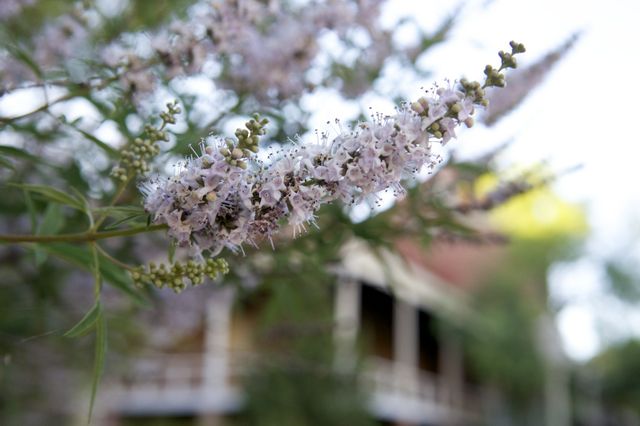 As a Land Grant Institution, the University of Arizona is expected to provide education, research and outreach in service to the state. The outreach component of our mission requires that we develop research programs addressing state needs and extend educational opportunities beyond the campus borders. The Campus Arboretum provides outreach programming independently, but also partners with others to expand the impact. Below are some examples of current and past community outreach partnerships.
As a Land Grant Institution, the University of Arizona is expected to provide education, research and outreach in service to the state. The outreach component of our mission requires that we develop research programs addressing state needs and extend educational opportunities beyond the campus borders. The Campus Arboretum provides outreach programming independently, but also partners with others to expand the impact. Below are some examples of current and past community outreach partnerships.
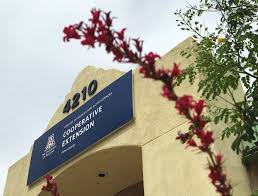 The Tree Stewards Program is run through a partnership with the Pima County Cooperative Extension Master Gardeners. Master Gardeners complete workshops and training to qualify as tree educators. They then volunteer as docents for tours and serve as trainers for students interested in leading tours. Additionally, the Pima Country Cooperative Extension hosts a Plant Clinic where community requests for information on plant cultivation and care are addressed. Those in the Campus Arboretum community wishing to have direction on care of their trees and shrubs may contact the plant clinic directly.
The Tree Stewards Program is run through a partnership with the Pima County Cooperative Extension Master Gardeners. Master Gardeners complete workshops and training to qualify as tree educators. They then volunteer as docents for tours and serve as trainers for students interested in leading tours. Additionally, the Pima Country Cooperative Extension hosts a Plant Clinic where community requests for information on plant cultivation and care are addressed. Those in the Campus Arboretum community wishing to have direction on care of their trees and shrubs may contact the plant clinic directly.
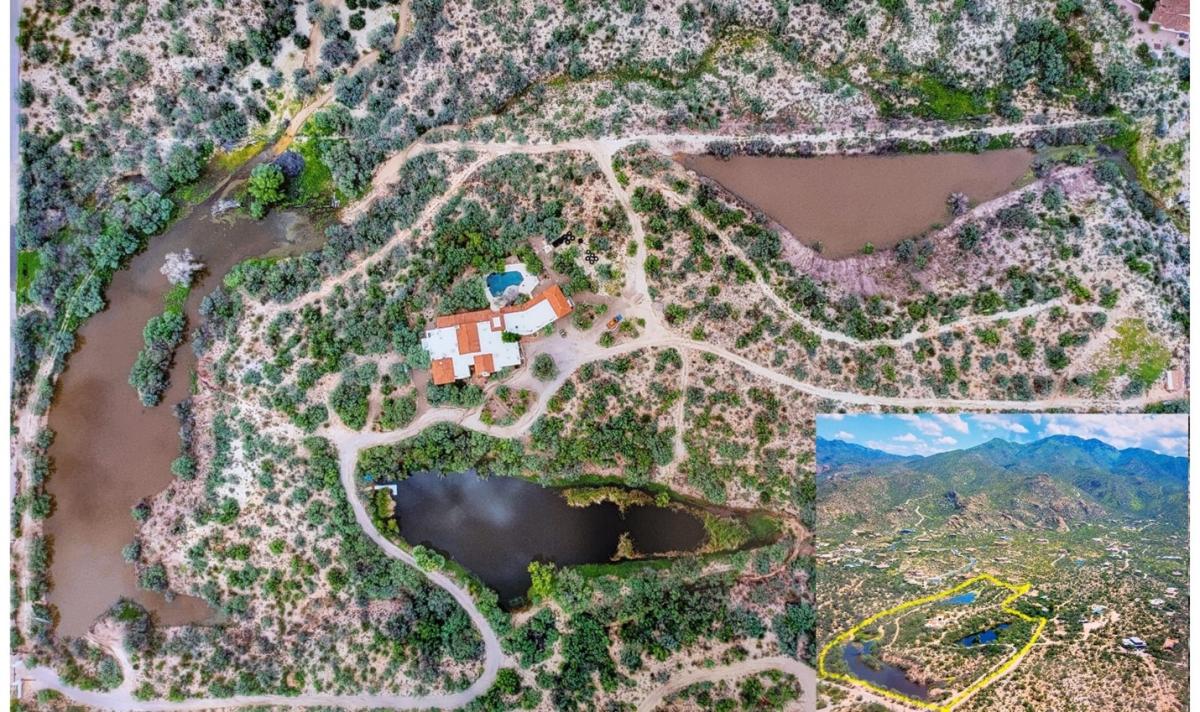 The Snyder Preservation Site Plant Walk The Campus Arboretum Project at Snyder Preserve iwas completed in Summer 2024. It was designed to transform this vibrant ecosystem at the Snyder Preservation Area into a living classroom to foster appreciation for Arizona's native plant plant species and their roles in local ecosystems.The project included the installation of interactive, interpretive signage to support the education and engagement of visitors. Each of the signs contains a QR code linking to detailed information about more than 50 native flowering species. The work was done in partnership with Dr. Wim Van Leeuwen in the School of Natural Resources and the Environment by undergraduate student Addie Leimroth. To visit the preserve, see the complete project page here.
The Snyder Preservation Site Plant Walk The Campus Arboretum Project at Snyder Preserve iwas completed in Summer 2024. It was designed to transform this vibrant ecosystem at the Snyder Preservation Area into a living classroom to foster appreciation for Arizona's native plant plant species and their roles in local ecosystems.The project included the installation of interactive, interpretive signage to support the education and engagement of visitors. Each of the signs contains a QR code linking to detailed information about more than 50 native flowering species. The work was done in partnership with Dr. Wim Van Leeuwen in the School of Natural Resources and the Environment by undergraduate student Addie Leimroth. To visit the preserve, see the complete project page here.
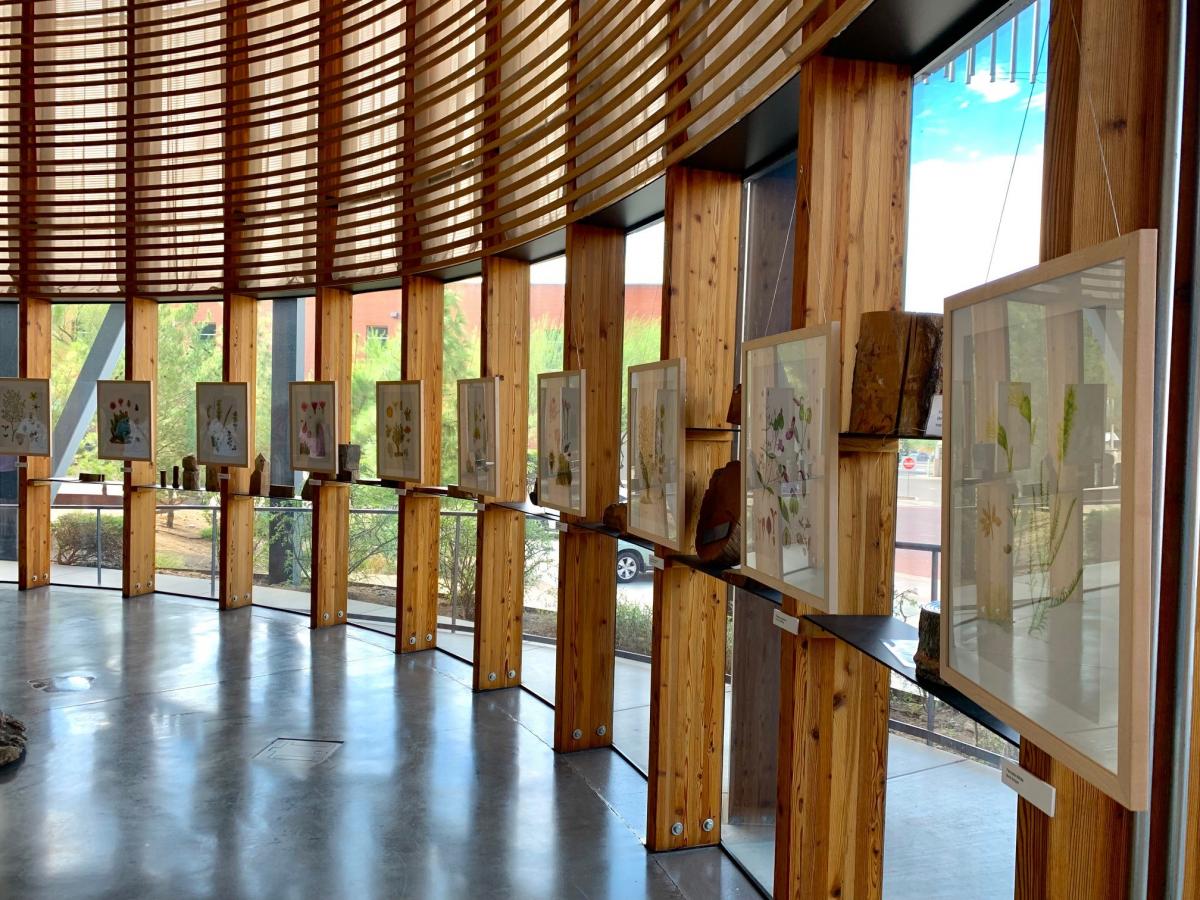 Matthew B. Johnson Florilegium Exhibits The Campus Arboretum established a florilegium of the historic Joseph Wood Krutch Garden to educate communities about the value and intricate beauty of Sonoran desert plants. The collection of original works is archived in the UA Library Special Collections and prints are exhibited annually in various locations (See our events calendar for past and upcoming exhibits). To learn more about the project, visit this site or view the virtual gallery here. Learn about Matthew B. Johnson and his role in creating this collection of scientific illustrations. To obtain digital files of the florilegium illustrations (for educational purposes) contact Dr. Tanya Quist, Arboretum Director at tquist@arizona.edu
Matthew B. Johnson Florilegium Exhibits The Campus Arboretum established a florilegium of the historic Joseph Wood Krutch Garden to educate communities about the value and intricate beauty of Sonoran desert plants. The collection of original works is archived in the UA Library Special Collections and prints are exhibited annually in various locations (See our events calendar for past and upcoming exhibits). To learn more about the project, visit this site or view the virtual gallery here. Learn about Matthew B. Johnson and his role in creating this collection of scientific illustrations. To obtain digital files of the florilegium illustrations (for educational purposes) contact Dr. Tanya Quist, Arboretum Director at tquist@arizona.edu
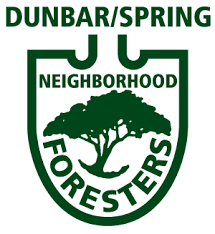 Dunbar Spring Neighborhood Foresters Tour
Dunbar Spring Neighborhood Foresters Tour
The Dunbar Spring neighborhood near campus is a wonderful example of sustainable practices for urban landscaping. They have built a community of neigborhood stewards who have planted more than 1600 native trees and shrubs, harvested millions of gallons of rainwater to irrigate the landscapes and reduce downstream flooding, and gathered resources to educate and inspire those in their own and other neighborhoods. Led by rainwater harvesting guru, Brad Lancaster, they call themselves the "Dunbar Spring Neighborhood Forester" and we admire and commend their inspiring work. To support their work, the Campus Arboretum, developed a tour of the neighborhood trees, facilitated by QR coded signs and accessible as either a self-guided mobile tour or fully remote via the web. To learn more or to participate in the self-guided tour visit: /student-projects/2021-dunbar-spring-neighborhood
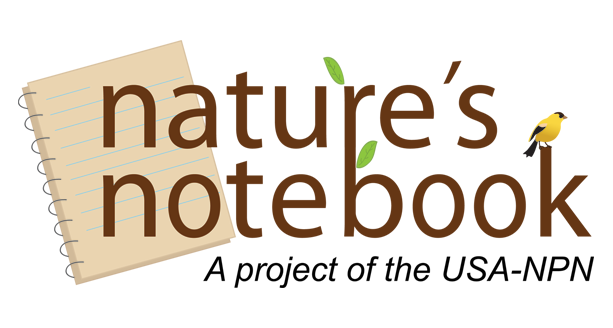
Phenology Trails and Training Program is a partnership with the National Phenology Network. You can join thousands of other individuals who are providing valuable observations that scientists, educators, policy makers, and resource managers are using to understand how plants and animals are responding to climate change and other environmental changes. Register for Nature's Notebook on the NPN website and search for UA campus sites including Old Main and the Krutch Garden. Check out the Botany Primer and other useful, related resources here. For educators interested in site-based community learning and experiential learning, check out the Phenology Walks and Trails Guide.
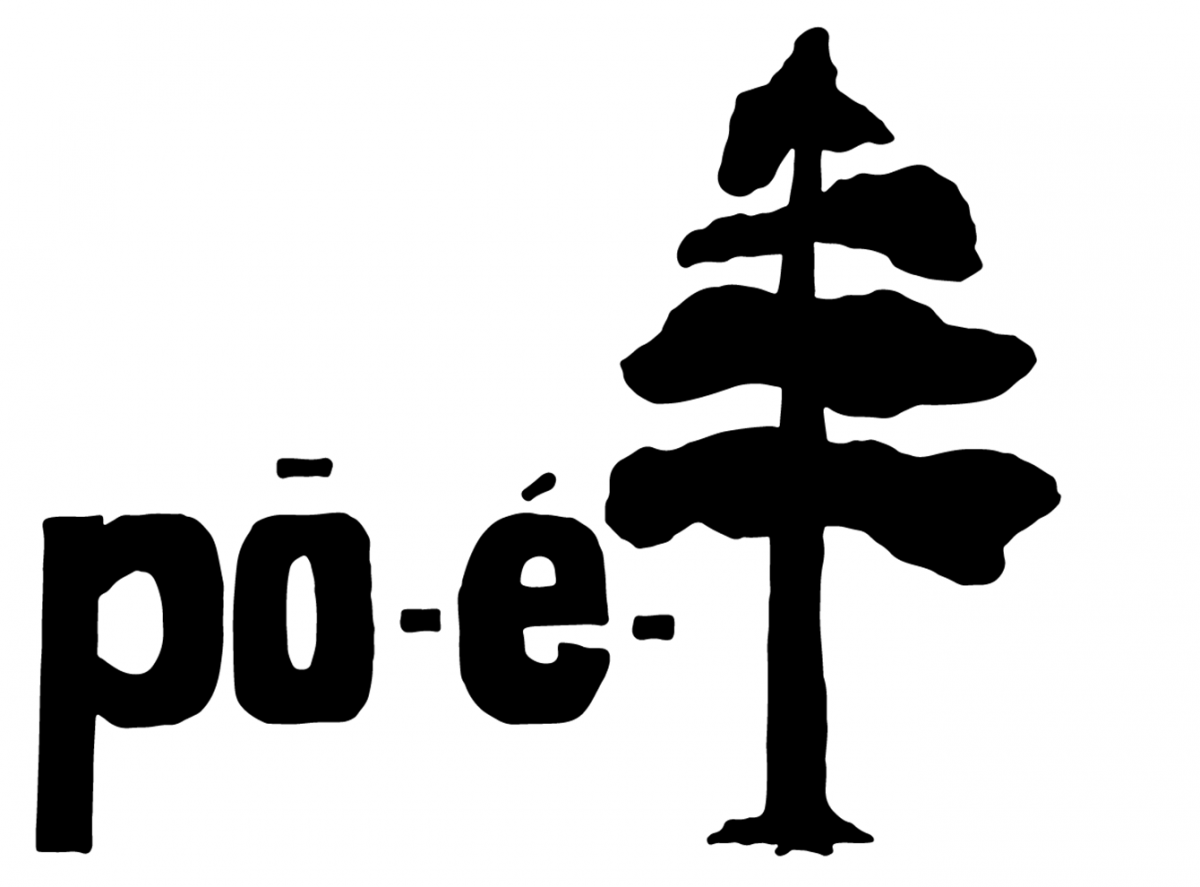 The Poetry Center is a wonderful place to visit on campus! Among their many community offerings, they provide a unique voice to communicate the value of the Campus Arboretum and all urban trees. To learn more about the "po-eh-TREE" program offered from 2014-2017, click here!
The Poetry Center is a wonderful place to visit on campus! Among their many community offerings, they provide a unique voice to communicate the value of the Campus Arboretum and all urban trees. To learn more about the "po-eh-TREE" program offered from 2014-2017, click here!
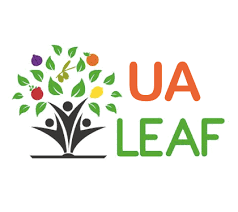 Linking Edible Arizona Forests, or LEAF on the UA Campus, is a non-profit program aimed at promoting sustainable food systems by harvesting and using edible products from urban trees. The UA Campus program functioning from 2012-2016 was the result of a wide array of community and campus partners and yields harvesting opportunities and edible products for resale. To learn more, click here! Since 20217, the UA CAmpus Arboretum refers those interested in urban gleaning to the Iskashitaa Refugee Network.
Linking Edible Arizona Forests, or LEAF on the UA Campus, is a non-profit program aimed at promoting sustainable food systems by harvesting and using edible products from urban trees. The UA Campus program functioning from 2012-2016 was the result of a wide array of community and campus partners and yields harvesting opportunities and edible products for resale. To learn more, click here! Since 20217, the UA CAmpus Arboretum refers those interested in urban gleaning to the Iskashitaa Refugee Network. 
